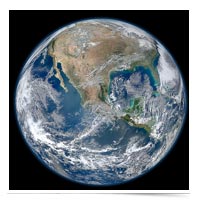“The greatest obstacle to discovering the shape of the earth, the continents, and the oceans was not ignorance but the illusion of knowledge.”
Daniel J. Boorstin, historian, professor, attorney, and writer (1914 – 2004)
Which is more hazardous? A lack of knowledge or mistaken knowledge?
A lack of knowledge leaves the search open to us all. When we admit what we don’t know, we can at least seek answers. But what about when we think we know? What happens when we are certain in our misunderstanding?
Assumptions, and the degree to which we cling to them for fear of being wrong, are some of the most dangerous beliefs. To a certain extent, we seem to be living in a culture where misconceptions and misunderstandings are ruthlessly defended rather than reconsidered. Why is there so much negative discussion about a politician or business leader changing their mind? Where along the line did we collectively decide that our beliefs should be fixed in perpetuity?
 We try to teach our children to own up to their mistakes. We attempt to engender a sense of curiosity, a willingness to experiment. Well, you can’t seek out the truth if you are unwilling to be wrong. Some of the world’s most important revelations have depended on the exploration and adoption of a more complex understanding of our universe. A round planet? A heliocentric universe? Heresy, once upon a time. People were put to death for even questioning the status quo.
We try to teach our children to own up to their mistakes. We attempt to engender a sense of curiosity, a willingness to experiment. Well, you can’t seek out the truth if you are unwilling to be wrong. Some of the world’s most important revelations have depended on the exploration and adoption of a more complex understanding of our universe. A round planet? A heliocentric universe? Heresy, once upon a time. People were put to death for even questioning the status quo.
It is useful to be wrong. Not only do you learn from the error, but you are permitted an opportunity to show humility and grace. There’s also an art to questioning long-held beliefs… and that too requires humility and grace.
Cultivate your healthy skepticism. Ask questions, even of your own “irrefutable” truths. Though some may withstand scrutiny, others may give way to fantastic breakthroughs and growth opportunities.
Photo credit: NASA Goddard Photo and Video


